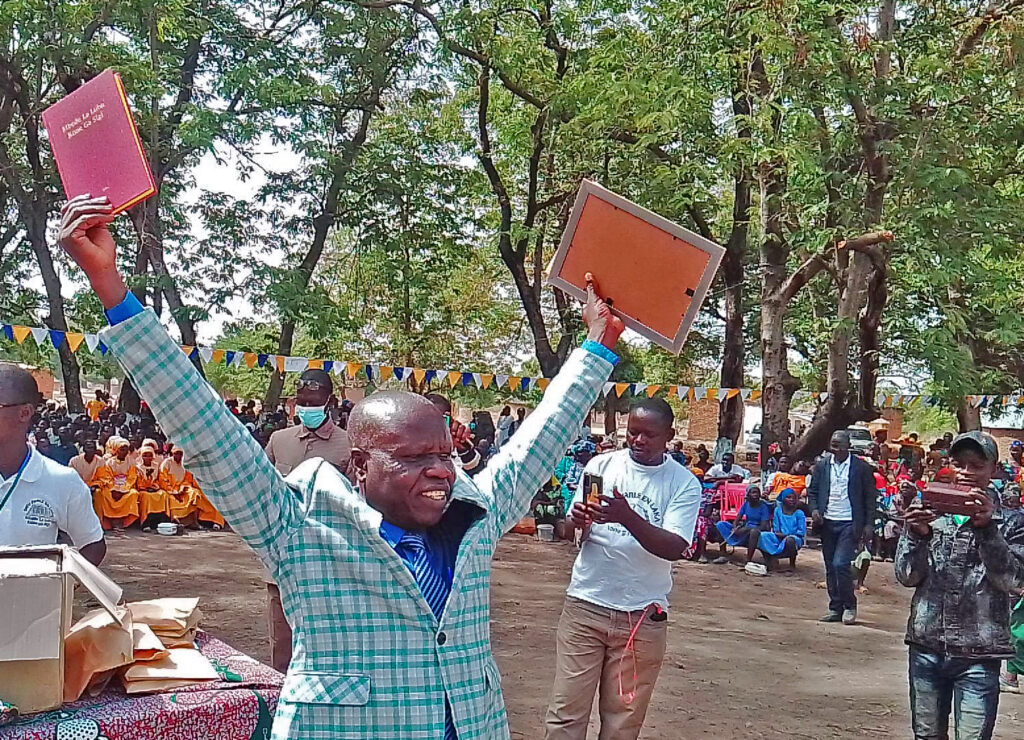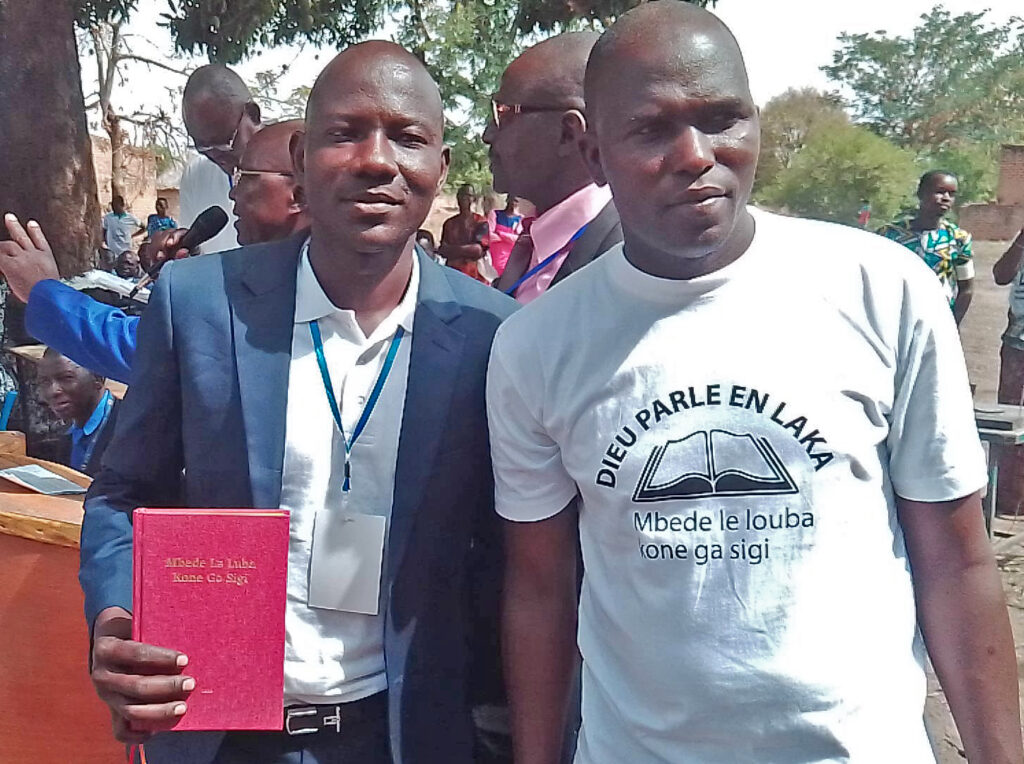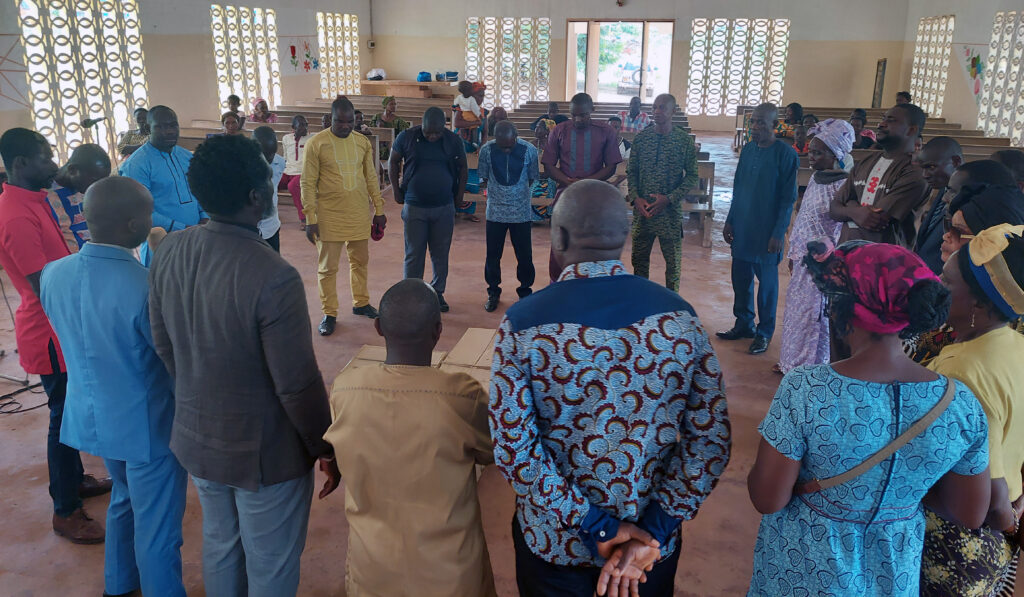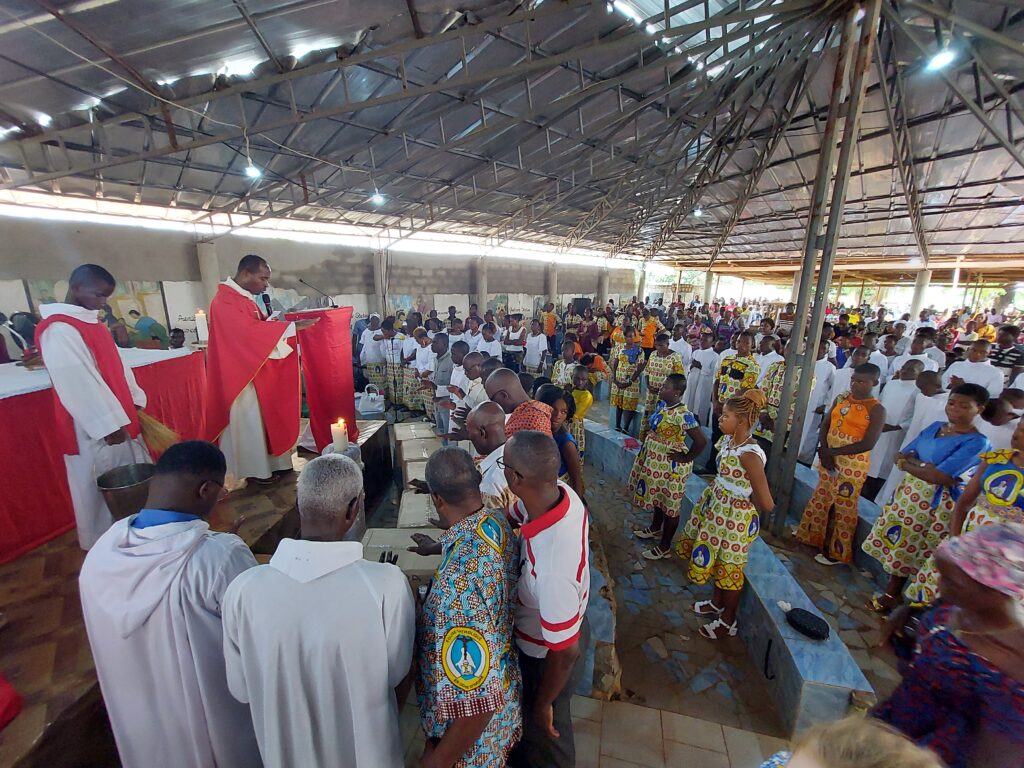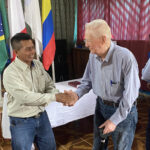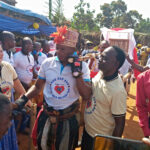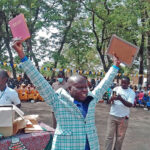Racing to the Finish Line
The river whips by, a maelstrom of pure energy and icy droplets. The team of four holds each other’s arms as they slip and slide through the thigh-high water so as not to get swept away downstream.
The river tracing was one challenge the sixteen racers—four teams of four people each—faced in the JAARS-sponsored Tennessee Race for Possible at Doe River Gorge.
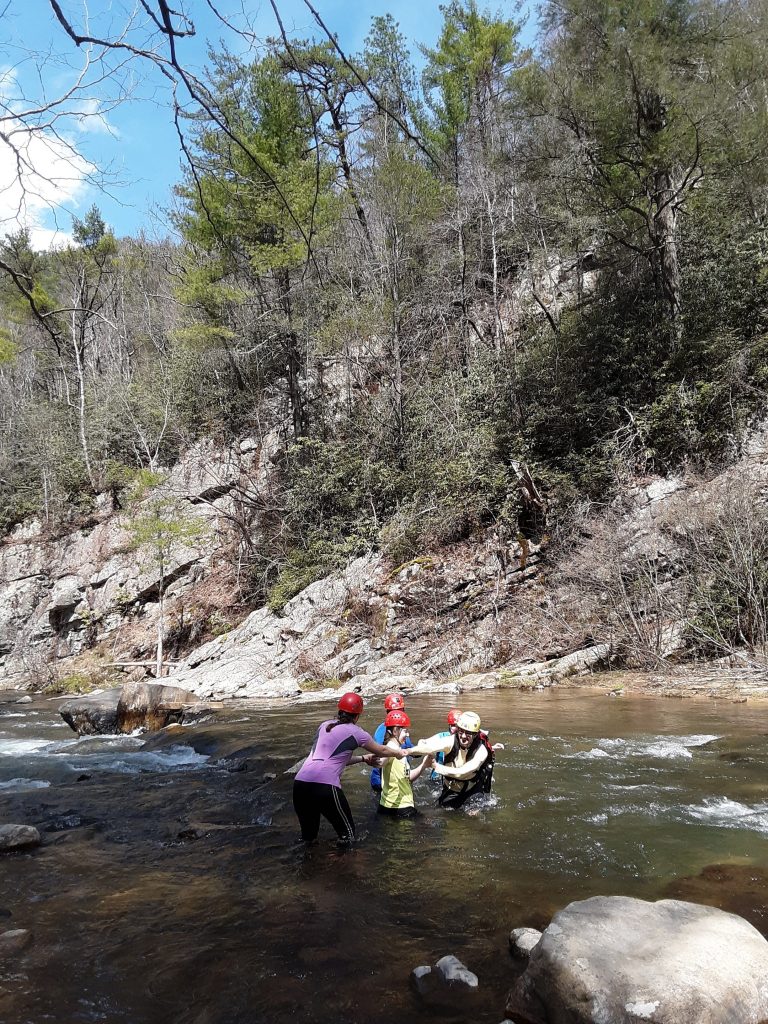
Amanda realized halfway through the river tracing that she was terrified, but didn’t know why. Later, she realized that it was due to growing up boating. “We were always told to stay away from the water. But now the staff wanted us to go out in it, and that was frightening.”
But Amanda didn’t let fear control her. She waded through her fright and finished the river-tracing challenge. After talking to a JAARS staff member at the race, Amanda realized that the fear she felt was a taste of the fear that missionaries on the field face. “It’s so much more real to experience it than to just read it in a newsletter.”
After participating in several races, Amanda sees a need for her church “to experience what life is really like for missionaries. And the race does that.” The race helps participants experience similar emotional, mental and physical strains to those serving overseas.
As part of seeing what life is like for missionaries, both nights everyone had the opportunity to hear from people who have served God in Bible translation in various ways. One man served as a JAARS-trained pilot for 42 years. He shared of growing up in his Philippine village and the sacrifices two Wycliffe translators made so he could have God’s Word in his language.
After the story, Amanda said, “It was great to hear a real person’s story, to see how translation has changed them.”
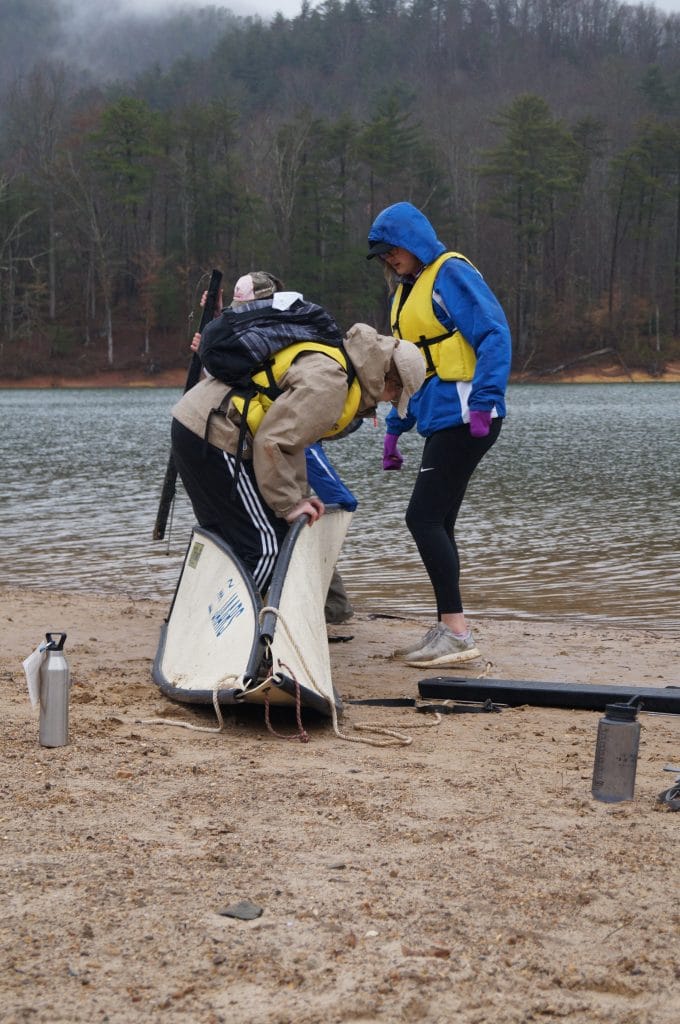
Besides wading through torrential waters, the teams hiked five miles, rock-climbed, and rappelled down a cliff on the first day. The next day, the racers either assembled or dismantled one of JAARS collapsible boats that translators use on the field, built a fire, and faced frustrations that translators can confront at airports and border crossings to reach their destinations.
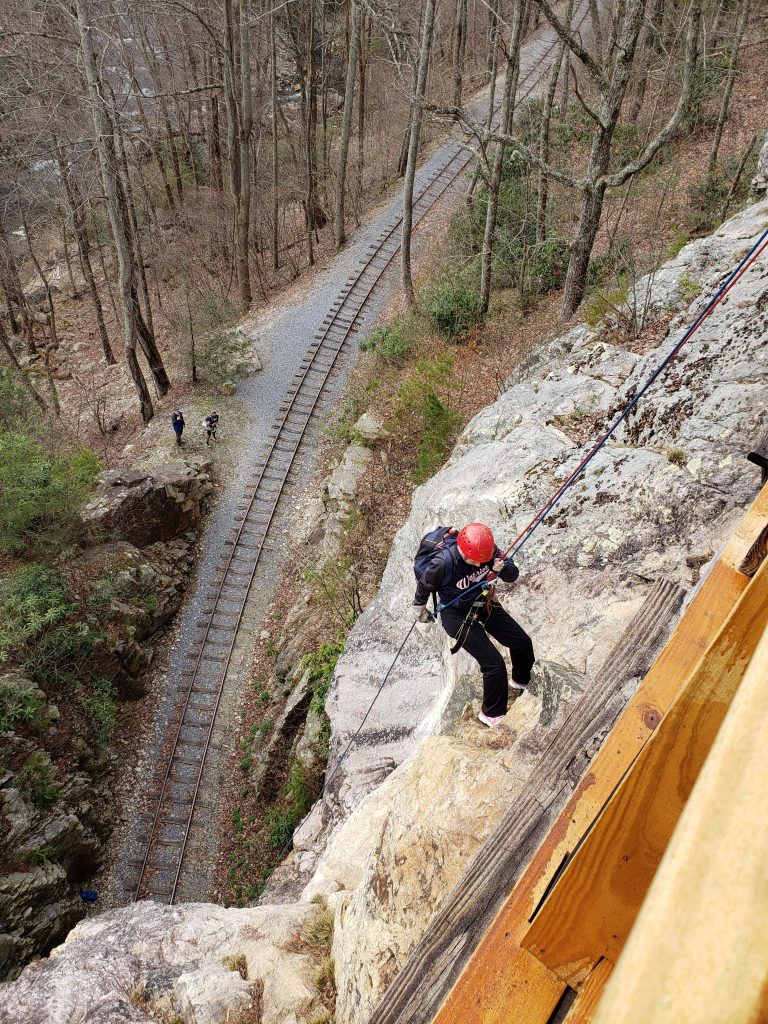
Each team was named for a language group in various stages of translation and had opportunities to pray for them as they waited for groups to finish rock climbing or as they hiked along a railroad to the next challenge. “It was helpful to hear specific prayer requests because often you have no idea what to pray for,” one of the racers remarked. “I know the language groups are out there, but not how to pray for them, so it was nice to have those specific prayer requests.”
Like the racers sprinting to the finish line on the last day, the language teams are racing to finish translating God’s Word as soon as possible so that people can hear about God’s love before they breathe their last and lose their chance.
One way the racers and JAARS help speed this process is by raising money to provide motorcycles for translators in Africa so they can reach their language groups easier and quicker. Although Amanda’s team didn’t come in first place at the Race for Possible, they raised the most money to provide African translators with these necessary vehicles.
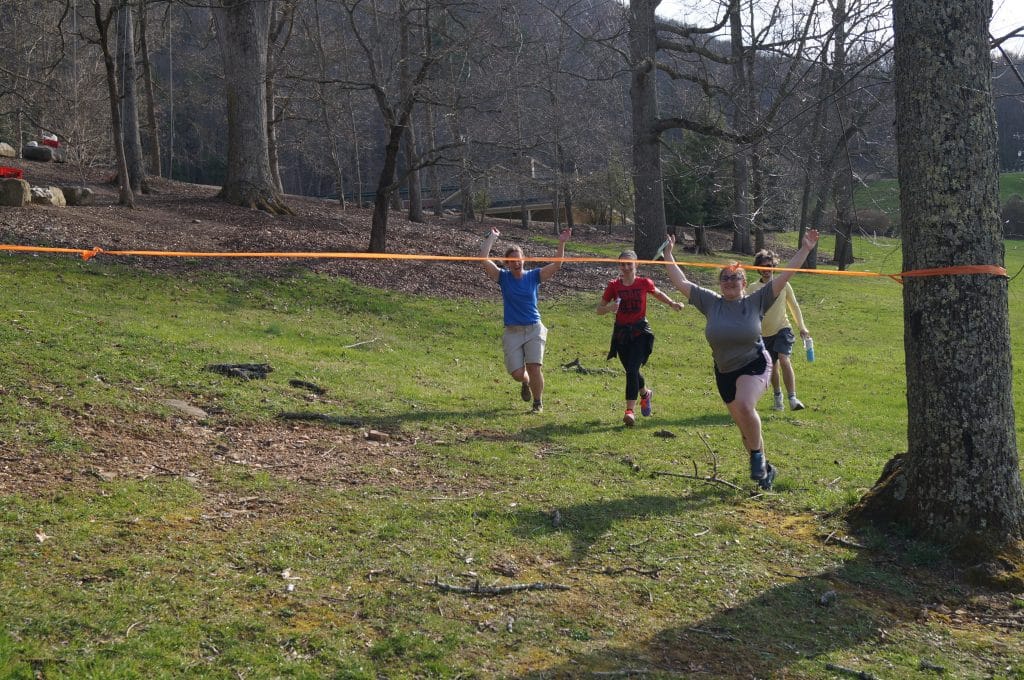
How are you helping our brothers and sisters overseas overcome their fears and race toward the finish line of their translations? A one-day Race for Possible will occur in Oregon on June 22. Other Races are scheduled for Wisconsin in September and Montana in October. We hope to see you at the finish line!



























































